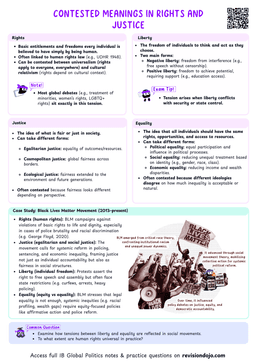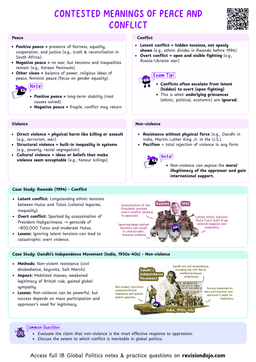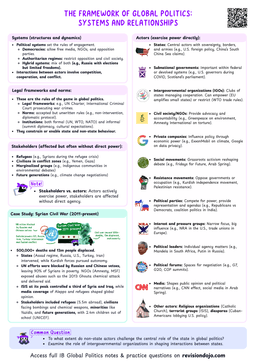Understanding Conflict Prevention and Deterrence
Conflict prevention
Conflict prevention involves proactive measures to address the root causes of conflict before they escalate into violence.
Deterrence
Deterrence focuses on discouraging potential aggressors through the threat of retaliation or punishment.
Strategies for Conflict Prevention
1. Diplomacy and Negotiation
- Diplomacy involves dialogue and negotiation to resolve disputes peacefully.
- Mediation by neutral third parties can help facilitate agreements.
- The 2015 Iran Nuclear Deal is a prime example of diplomacy preventing conflict by limiting Iran's nuclear capabilities in exchange for sanctions relief.
2. Early Warning Systems
- These systems monitor indicators of potential conflict, such as political instability or human rights violations.
- Data-driven analysis helps identify risks and trigger preventive actions.
- The UN's Framework of Analysis for Atrocity Crimes provides guidelines for identifying early warning signs of genocide and mass atrocities.
3. Economic Development and Aid
- Addressing economic inequalities and providing development aid can reduce grievances that lead to conflict.
- Programs that promote education, healthcare, and infrastructure can stabilize regions.
- The World Bank's Fragility, Conflict, and Violence Strategy focuses on building resilience in conflict-affected areas through economic support.
4. Strengthening Governance and Rule of Law
- Promoting transparent and accountable governance reduces corruption and builds trust in institutions.
- Legal frameworks that protect human rights and ensure justice are crucial.
- The African Union's African Peer Review Mechanism encourages member states to improve governance and prevent conflict through self-assessment and peer review.
Deterrence Strategies
1. Military Deterrence
- Maintaining a strong military or alliances can deter aggression by raising the costs of conflict for potential adversaries.
- NATO's collective defense policy under Article 5 serves as a deterrent by promising a unified military response to any attack on a member state.
2. Nuclear Deterrence
- The threat of mutually assured destruction (MAD) has historically prevented nuclear-armed states from engaging in direct conflict.
- While nuclear deterrence has prevented large-scale wars, it also raises ethical concerns about the potential for catastrophic destruction.
3. Economic Sanctions
- Sanctions can deter aggressive behavior by imposing economic costs on states or non-state actors.
- Sanctions against North Korea aim to deter its nuclear program by restricting access to financial resources and technology.
Challenges and Criticisms
1. Limitations of Deterrence
- Deterrence may fail if adversaries doubt the credibility of threats.
- Non-state actors, such as terrorist groups, may be less susceptible to deterrence.
2. Unintended Consequences
- Sanctions can harm civilian populations and exacerbate humanitarian crises.
- Military buildups may escalate tensions and trigger arms races.
3. Complexity of Root Causes
- Addressing the underlying causes of conflict, such as ethnic tensions or historical grievances, is often challenging and requires long-term commitment.
The Role of International Organizations
1. United Nations
- The UN plays a central role in conflict prevention through peacekeeping missions, mediation efforts, and diplomatic initiatives.
- The UN Peacebuilding Commission supports post-conflict recovery by addressing root causes and promoting sustainable development.
2. Regional Organizations
- Organizations like the African Union and the European Union engage in conflict prevention and mediation within their regions.
- The African Union's use of regional peacekeeping forces in Somalia (AMISOM) highlights the importance of regional cooperation in conflict prevention.
The Importance of Multilateral Cooperation
- Conflict prevention and deterrence require collaboration among states, international organizations, and civil society.
- Multilateral approaches are more effective in addressing transnational challenges and ensuring sustainable peace.
- When analyzing conflict prevention strategies, consider the interplay between local, national, and international efforts.
- This multi-level approach provides a comprehensive understanding of how conflicts can be effectively addressed.
- How do conflict prevention and deterrence strategies differ in their approaches and outcomes?
- What are the ethical implications of nuclear deterrence and economic sanctions?
- How can international organizations balance state sovereignty with the need for intervention in conflict prevention?


